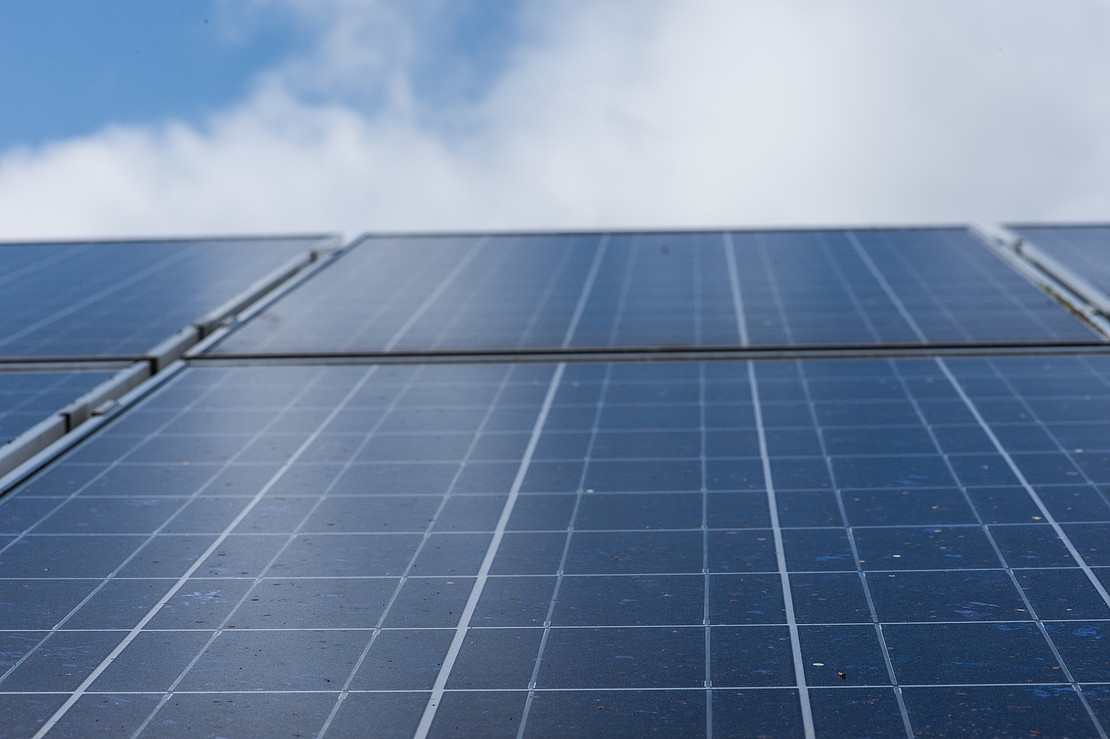This page contains automatically translated content.
What does water scarcity mean for the energy transition?
 Image: Paavo Blafield.
Image: Paavo Blafield.Whether and how the globally available water favors the use of renewable energies and slows down fossil energy sources was investigated from various angles by nine research institutions and small and medium-sized enterprises as part of the joint project "Water resources as a significant factor in the energy transition at local and global level - WANDEL". Among other things, the project partners calculated the water footprint for different energy systems and developed tools for water management. The project, funded by the German Federal Ministry of Education and Research over a period of three years, was jointly coordinated by the University of Kassel and the Ruhr University Bochum and will be completed at the end of 2020.
It is well known that different energy systems have different water requirements. Direct water consumption, for example for cooling thermal power plants, or the regulation of river flows for hydropower use, affect the local water and environmental systems at the power plant site. However, indirect impacts on water resources in other regions of the world, for example from coal or copper mining, are much less well understood. The WANDEL project studied global energy scenarios and their impacts on water resources as well as four existing power plant sites in three countries with different energy systems: a coal-fired power plant with water cooling on the Weser River, a chain of six run-of-river power plants on the Danube River, a solar thermal power plant in Morocco, and the use of sugarcane bagasse to generate electricity in Brazil.
Water footprint analysis for different energy systems
The project results show that strategies for transforming the energy system in the context of the energy transition should not only consider the reduction of greenhouse gas emissions, but also water consumption. Thus, at the global level, scenarios with ambitious targets for a low-carbon energy system do not generally lead to reduced water use. Compared to current conditions, the total amount of water withdrawn and consumed worldwide for thermal power plants to produce electricity will tend to continue to increase and can only be reduced if the efficiency of power plant and cooling technology increases. This makes thermal power production increasingly vulnerable to water scarcity as a result of anthropogenic climate change.
The project team conducted a water footprint analysis along the entire energy supply chain, i.e., taking into account local and remote water demands, and thus compared the water consumption per unit of energy produced for different energy systems. The analysis showed that energy production based on renewable resources, for example, has a very high water footprint. Integrated systems using waste materials (in this case, sugarcane bagasse) for energy production can significantly reduce the water footprint. Risk and sustainability analyses show that energy supply is becoming more vulnerable with increasingly frequent water scarcity and drought under climate change conditions. Especially in arid regions, water is already a scarce resource and a limiting factor for economic growth and agricultural production. There, human and ecosystem health, sustainable energy production, and water supply are at risk in a changing environment. Because hydropower generation impacts freshwater megafauna, biodiversity should also be considered when evaluating low-carbon energy transition strategies.
New tools for the field
To address the identified issues, the WANDEL project team worked with practice partners to develop several tools for technical and governance governance: a new water management tool and a simulator for training power plant staff. These tools enable optimal management of dams and impoundments and increase the efficiency and safety of waterways and dam-controlled streams. A new approach, Environmental Sustainability Assessment, expands environmental impact assessment to evaluate the sustainability of anthropogenic processes with upstream supply chains. A set of indicators to determine the vulnerability of energy systems and water resources helps decision makers assess the sustainability of actions that are in the context of energy and water security.
Finally, the WANDEL project takes an open-data approach. All data generated by the project will be made available to the public on the WANDEL-Share platform. The project's open data policy provides a solid foundation for resilient decision-making in the context of the transition to low-carbon energy systems.
More information:https://wandel.cesr.de/de/
Funding
The WANDEL collaborative project was funded by the German Federal Ministry of Education and Research within the funding measure "GRoW - Global Resource Water" in the program "Research for Sustainable Development (FONA)" with about 2.5 million Euros.
Collaborative partners:
- University of Kassel, Center for Environmental Systems Research
- University of Kassel, Department of Hydraulic Engineering and Water Management
- Leibniz Institute of Freshwater Ecology and Inland Fisheries
- University of Osnabrück, Institute for Environmental Systems Research
- United Nations University, Institute for Environment and Human Security
- Wuppertal Institute for Climate, Environment and Energy gGmbH
- KIMA Automation GmbH
- Society for Water Management, Water Ecology and Environmental Planning mbh
- mundialis GmbH & Co. KG
Press contact
Prof. Dr.-Ing. Rüdiger Schaldach
Center for Environmental systems Research (CESR)
University of Kassel
Tel.: +49 561 804 6130
E-Mail: schaldach[at]usf.uni-kassel[dot]de
Prof. Dr. Martina Flörke
Chair of Engineering Hydrology and Water Management
Ruhr-Universität Bochum
Tel.: +49 234 32 24693
E-Mail: martina.floerke[at]hydrology.rub[dot]de